A student’s Big Question: “How can I prepare for an audition?”
For several months each year I am a drama teacher for a lively and endearing group of home school students in our area. I love them almost as much as I love my own ornery kids. They allow me into their hearts and their lives for a time, and it makes me stretch and grow in this creative area–theatre–and I love that. I try to teach them, I pray for them, I encourage them. I am their dramamama for a time, and I love it.
When the play is over and the props and set pieces are finally put away in storage, and the house is cleaned up and the thank-you notes are sent, I still get to enjoy relationships with these kiddos. Occasionally one will ask me to do some little favor: to write college scholarship recommendations, to fill out references for job applications and whatnot. Right now I’m helping one of my drama kids with a talent show entry.
The other day I received an e-mail from a young drama student who is going to audition for a summer theatre production in her hometown. This is what she wrote, in part:
“Dear Mrs. Miller
I really want to be a better actor. I get embarrassed when I start saying lines. I know my voice sounds different from what I hear and I feel like my real voice sounds unlike the character and sounds strange. I know I just need to get courage and do it but it never works. I get scared at the last minute and can’t do it. What would be your advice for what I should do to improve my acting? Thank you very much.”
I’ve been mulling over this letter for several days, because a) there’s no easy answer to this question, and b)I know that this young lady has everything inside her already that she needs to accomplish her dreams. I could write a book on this, but that’s not something I have time to do at the moment, so I’ll just write a blog post and call it good–for now.
So my dear sweet drama student, here you go. Hopefully this will help you do better on your audition.
Dear Sweet Drama Student:
You want to do better at your auditions. Okay, I can make a few suggestions, but it might take a little time and effort on your part. But I know you can do this thing! First, I’ll address what I would define as “Mechanics.” To do the very best you can do at your audition, make sure these things are in place:
1. Are you neatly dressed and groomed? A director has a hundred things at all times–at least!-competing for his attention. He is probably not a young person (ahem) and is getting tired. He has already done more on the audition day than you would believe. So do him a favor (and yourself a favor, too!) and don’t wear something that will distract him from your audition. Simple, right? Don’t wear something nutty to get attention. Don’t pull a hat down over your face. Don’t wear a hat at all, for that matter. Make sure your hair is neatly combed and pulled away from your face, as well, so the director can see every expression.
2. Can you read clearly so you are easily understood by the director? There are many students who are not good readers, and then there are others who can read but have some sort of speech impediment or lazy speech habit that keeps them from being easily understood. This is very, very important–if you want a big role, you need to be able to read clearly and be understood by the director.
If you’re not a good reader, spend more time reading! Leave the computer and the television off and read and read, and read. Read to yourself, read to others. Eventually you’ll be an excellent reader. You will stand out from all the others.
3. Can you read loudly enough to be heard without any effort? If you have a soft voice, this is also something that must be overcome. Just a hint, dear one: most girls have smaller voices, but they need to cultivate big voices if they are going to perform. If the director is straining to hear you during auditions, he’ll know that he’ll have to work very hard coaching you to project your voice so you can be heard when you’re onstage during rehearsals and performances. This is very hard work for him, and is time-consuming. He simply may not have the luxury of this much time to invest, especially if there are girls who have strong, loud voices to begin with, who are competing against you for that part you want.
So here’s some homework for you, darlin’: every day until your audition date, go outside and practice reading to the chickens or to the trees or to your sister, or to your mum, in a confident, big voice. Practice using your voice until you like what you hear, and then ask somebody you trust to listen to you and offer constructive criticism. You will improve with practice, I promise! You improve at math when you do problems every day, and you get better at the violin if you practice every day. You will improve at this, also. I promise.
That’s the easy part. Now here is where it gets a little more tricky, but this is the fun part, too.
Here’s the big question: What is your director looking for? When he has thirty kids all trying out for the same part, what can you do–after the three mechanics listed above are as good as you can get them–to stand out in the crowd? That’s what you want to do, in order to get a good role. You want to stand out. You don’t want to blend in. I know this may go against your character, but you want the director to watch you very closely and you want to be the center of attention here. Trust me. Here are a few tips on how you can do this:
1. Remember that you can be anybody you want to be, when you’re onstage. I studied piano with a professor at a college who, when I would confess how nervous I was about performing in front of judges and faculty members or a large audience, would always encourage me with this line: “Nobody out there (in the audience) knows that you are a little bird from Nebraska. You can be whomever you want to be when you’re onstage.” Are you shy and quiet in general? I was. I still am, honestly! But I learned pretty quickly that I could be a totally different person onstage, and that was enormous fun! You don’t have to be yourself when you’re onstage!! Isn’t that awesome? Do you wish that you were more outgoing, funnier, more popular in real life? You absolutely can be, when you’re onstage.
2. Listen to those creative voices in your head, and don’t be afraid. You are a creative, talented kid. I know you are, otherwise you wouldn’t be interested in theatre. You really want to be a great performer. You have good ideas, but you may be too shy or even a little bit afraid, and so you don’t act on them. Perhaps you chicken out at doing something unusual, at the last moment. Maybe you think your voice sounds funny, or that you aren’t as flashy or as bold as some of the other kids. None of that matters. What matters is if you choose to act on your creative ideas, or not. Are you brave enough to do this? I know that you are. You can’t imagine how much fun it is to just let go and have a good time, during performances and during auditions, too. Be brave. Be open. Have fun!
3. Your director is looking for a “spark.” Aside from the mechanics listed above (which anybody can improve) your director is looking for a “spark”: something new and creative and interesting that you can provide to his show. If he sees it in you, he’ll give you a bigger part–providing there is a part is suitable for you. You’ll never show that spark (that I absolutely know is inside you!) if you’re afraid. So refer back to points 2 and 3 above, and have no fear, baby.
4. Don’t forget that you have many areas that you can use to make your audition and your character more interesting. Excellent actors use their bodies, their faces, and their voices to portray their characters, and also their imaginations. Every one of these elements is important, and when all four merge together in just the right part, do you know what happens? Magic!
5. One more thing: Sometimes, even if you have everything listed above all together and you do your best and you show plenty of spark and you don’t allow your fear to hold you back, you will still get a small part (or no part at all) and this stinks, but sometimes there are things that you cannot control, which play a part in the director’s decision. Perhaps the role you really would like is of a bold and saucy Spanish woman, and you’re a tiny blue-eyed blonde. You may be not physically appropriate for the role, even though you did everything right during auditions. Every director suffers through making these decisions. So if this happens to you and you get a part that is disappointing to you, there are still some things you should do.
And that leads me to the third part of my letter.
How you can improve your chances of getting an awesome part next time?
1. Be the very best at your part that you can be–no matter how small or (initially) disappointing it may be to you. Keep your shoulders back and your eyes bright and be grateful that you have opportunities to participate in theatre at all. In our little community when I was in high school, there was no theatre. There was no money in the school for theatre, and there was no community theatre, either. My friends and I put on our own little play to fill that longing, but we had no director, no costumes or set to speak of. So you are blessed with these opportunities, and it’s best to remember that. Your director will notice if you give 100% of yourself to even a small part, and he will remember and likely reward you the next time auditions roll around.
2. Don’t skip rehearsals or habitually arrive late, or show the director by your boredom how disappointed you are in your part. Be diligent in all areas, and you will bless your director, and he will remember it next time. Believe me. He will. He will make a mental note that you are dependable and conscientious, and many times dependable and conscientious trump a louder voice or a more sparkle-filled audition. It’s true.
3. Help in any way you can. Reach out to your fellow actors if they need help with lines. Grab a group of other students when you can to snap lines together. Make use of every opportunity to learn and do better. Jump up if the director asks for volunteers to read lines if somebody is absent. There’s no room for shyness! You’ll improve your own acting abilities by engaging in this way. Bring your director a glass of water. Chocolate gifts are quite welcome, too. 🙂
4. If possible, go to see some excellent, live theatre. Not only is this really, really fun, but you will be inspired and will undoubtedly pick up some great creative ideas to incorporate into your own performing. Besides live theatre, there are of course scads of DVDs of excellent theatre productions that will have you gasping in delight. Ask your director or other theatre types you trust for recommendations.
5. Remember that developing your skills in theatre or any art is a lifelong process. Even if you work and practice and prepare and so forth, your skills may not improve overnight. That’s just the way it is, sometimes. I’m. . . like . . . so old . . . for instance, but I delight in learning new things every day in many areas, and so will you. If you keep up your interest in theatre, you’ll gain new skills all the time. So be patient and gentle with yourself and don’t be discouraged, and remember that this is a lifelong process, and you’ve got lots of time to learn.
6. Last but not least, pray about it, dear one. Your Father loves you and wants to give you the desires of your heart. “Take delight in the Lord, and He will give you the desires of your heart.” (Ps. 37:4) You’ve shared with me these desires–have you shared them with Him? Ask for wisdom, understanding, courage and the proper grateful attitude.
That’s it for now! I’ve taught drama for over a decade and this is the first time I’ve written all of this down, though it has been rattling around in my befuddled brain for some time. I hope that it proves to be helpful to you, and good luck on your audition! I know you’re going to be awesome!
Love,
Your dramamama
XXOOXX
- Elven Lembas Bread recipe: one bite will satisfy a man for a day!
- So what’s the big hairy deal about COMPOST, anyway??


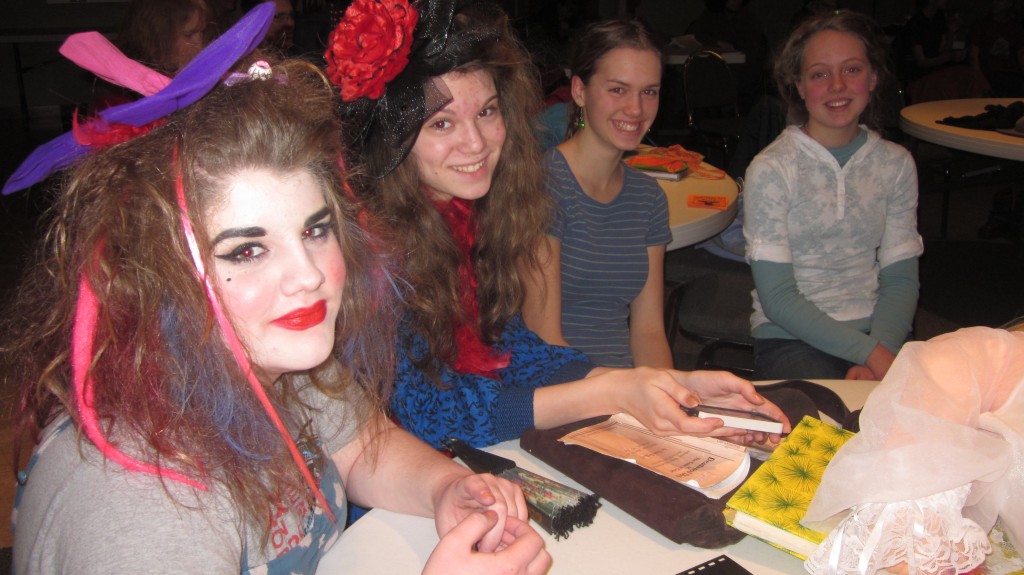
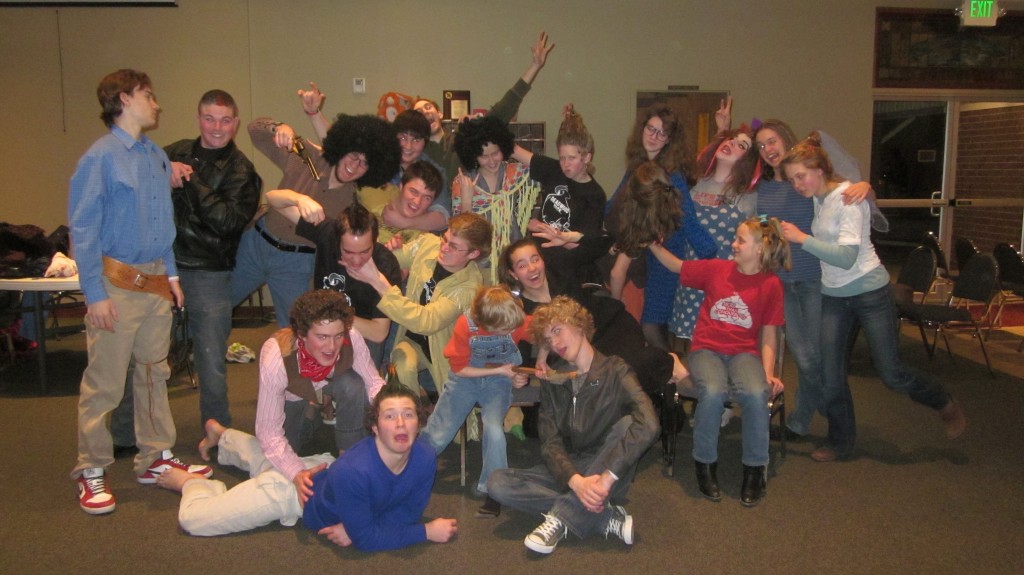
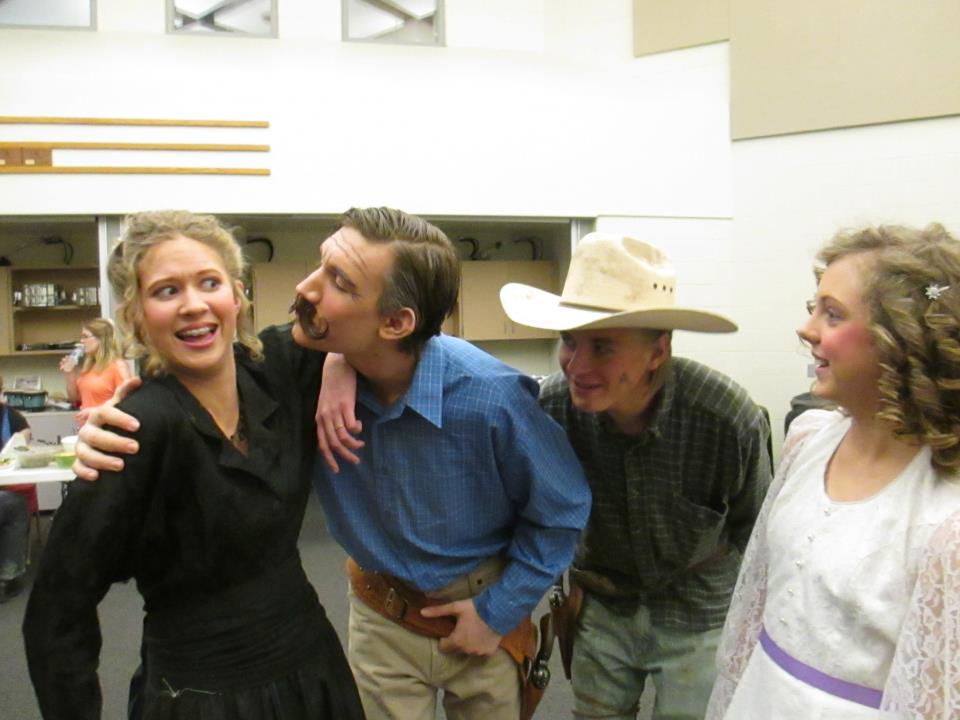
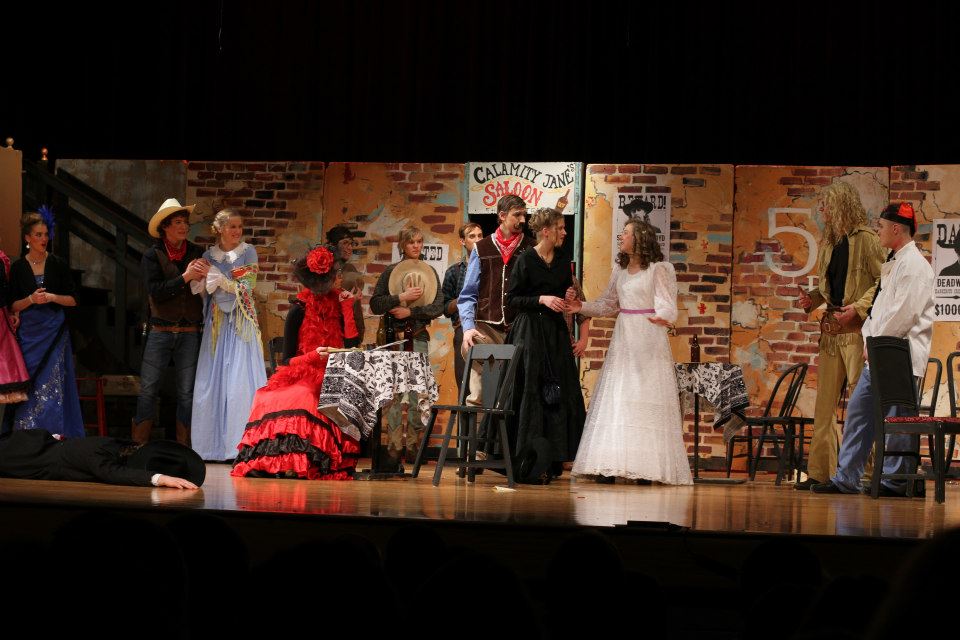
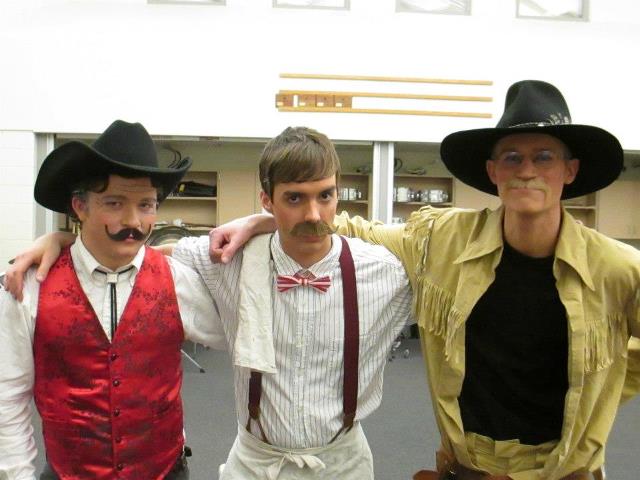
You do realize you need to write a book don’t you? Look at your post. It’s a book waiting to be written as only you can write it!
Oh, Toni, that’s an awesome idea. Thanks, sweetie! 🙂
You have the base for a good short book for kindle, you really should set a little time aside (30 minutes) a day, and stretch the information a little. Then get it on kindle, if it’s real short make it a 99 cent book, if you have 50 pages, $2.99. The world is full of young actors that need this advice. During my very short time on stage, the hardest part for me was projecting my voice to the back of the room while trying to appear to be talking in a natural voice. Like you said, all art improves with practice. When we were doing “Becket” a friend of mind played a young man in one act and a very old man in another act, it was a great education watching him transform himself between acts. So I would suggest to try to study your fellow actors and gain little secrets from each of them. As a Chef, I have always watched other chefs when working with them. I believe that I have learned more from them than the text books.
Chef, I SO agree and I love the thought of your being onstage. I didn’t know you had been in theatre. Thanks for your ideas about a kindle book, I think you’re right and maybe I could start that right now. I have plenty of ideas of how to stretch the info in this post. I could have written much more, but of course wanted to spare my readers of a too-long post. ha!
We had a Shakespeare drama club in our homeschool group. My kids loved it, they learned Shakespeare in a fun way. The adored the drama leader. There was also one large play that was done in the spring, it wasn’t always Shakespeare but a play where elementary through high school kids could be in. This was so much fun as much for the kids as for the moms because we had to be willing to help.
I don’t think you drama leaders always know how special you are the the kids and the families. Thank you.
Shawn,
What wonderful memories! I love Shakespeare but have never had the courage to tackle it! Thanks so much for your kind words, sweetie. I appreciate it so much! 🙂
Amy, what timeless wisdom you have offered so generously and eloquently. All of your insights relate really to nearly everything we do in life. That’s one of the reasons I believe theater and performance provide some of the best education in life. In the words of Shakespeare, “All the world’s s stage” and there are multiple layers of meaning there. Thanks for another wonderful post!
Deb, What a nice thing to say! That’s partly why I went ahead and posted this on my “chicken” blog because I thought it had principles that many people could learn from. So much can be learned from theatre, whether you are onstage or in the audience or backstage cleaning things up! Thanks again Deb for your comment!
Great advice- not just for those who wish to make it on the stage- but for those who need to present something- to a small group, to a big group, to a board of directors.
Thanks Roy for your valuable (as always!) 2c. 🙂
I think we could all apply this exellent advice to our everyday lives. Most of all, I need a BIG VOICE. My husband usually asks me to repeat my words, which is SO boring. I guess, all the world’s a stage and we are all actors.
I have a very soft voice, too, Francene, so it’s a struggle for me to be heard, too. But I think practice really helps. And knowing how to do it–what muscles to use, etc. Thanks for your comments!
Drama coach –> field hockey coach! Different activity but our goals are soooo similar! My guess is that you are FANTASTIC!! So much good information for us all… just saying.
Hugs!
Right back atcha, Carrie, I’ll bet your FH kiddos just love you! Blessings to you!
There’s always so much more to doing things than what we realise! And so much of this could relate to just life and how we should approach it! Compulsory reading for everyone!
Thanks Tamsin, I appreciate your comment!
Mom,
Wonderful post, as always. This really helps me–and other drama kids– know what to do, how to act, and what you’re looking for. Not that I didn’t know that already, since you’ve been talking about what to put in this post for the last few days. . . 😉
Love you!
Mollusk
Thanks Mollusk. I love you and I think you’re awesome onstage!
Hi Amy, everytime I connect at your blog I am taken on such a special journey and want to thank you for that! To me the biggest gift you gave this young person aside from all the great points listed was to share with them that they can do it! That you believe in them! It is my guess that those words and feeling you gave your Sweet Smart Drama Student will carry them far in life! Thanks for doing that. Best Regards, Wendy
Wendy,
I’ve heard that the Sweet Smart Drama Student that I was writing it to printed off the post and has it in her pocket. I’m so glad you enjoyed it, too.
This will be very helpful to my son who is crazy-nervous about trying out for the school play – wants to but almost throws up at the thought – we’ll get there – thanks for the post.
Sara,
Remind your son that the other kids are just as nervous (they probably are) and that he’ll do great! School plays are so much fun and such great learning opportunities!
This post is packed with some great tips not just for acting but for anyone who wants to learn how to communicate better or present themselves in the best way possible. The world is our stage. Definitely some good life lessons here 🙂
Thanks so much, Chivon!
I really enjoyed this post. I love the name, Dramamama too! My son is 17 and a musician and really comes into his own when he is on stage. He doesn’t like parties or big groups much but he has always been happy to make a lot of noise when it comes to music and singing. I think it comes from his inner conviction that this is his purpose in life. I’m noting your advice as well because I’m due to go on a speaking course next month – I’ve been trained to speak as a lawyer but I want to be able to speak from the heart, authentically, and that’s a whole different kettle of fish!
Harriet,
I used to teach high school speech, and so much can be accomplished with a little bit of practice, as far as public speaking! I’m sure you’ll do fine, because you’ll have a message that you feel passionate about and so the audience will engage with your passion. So much of the mechanics of public speaking just take practice, and you should get that with a speaking course. Good luck with it–I’d love to hear about it!
This is good solid advice for us all 🙂
Thanks Gillian!
Amy,
You should write a book. I agree with your other readers.
Every time I read what you write, I think “I want to write like her!”
Much of this advice applies to writing too – finding, exercising, using, and being confident in our individual writing voices.
You are encouraging and inspirational!
Keep writing!
Regina,
That is just the sweetest thing to say. Thank you. I love the way you write, too! I agree that this advice applies to many other areas, too. Thanks for your kind words!
What lovely, sage advice! Those photos remind me of my days at school when I was very much into drama and debate.
Thanks Carlana! I loved my college experiences in drama. Such a rich experience!
I decided to share this in two places: on Pinterest, on my philosophy board and on my personal LinkedIn profile. I agree totally with several other commenters – this post has the making of a book. This is so different than anything I wold ever do (introvert doesn’t begin to describe me) and every sentence was full of authenticity.
Alana, I really owe you–thanks so much for the sharing!! I appreciate your kind words.
Such a beautiful letter of encouragement and helpful tips to your student! I agree! It’s the making of a good book!
Thanks so much, Dayna. I’m going to expand it into a book as soon as I can, and I really appreciate your encouragement!
Dayna,
Thanks so much for your comment. By the way, I tried to make a comment on your post about children with autism, but I had trouble logging in to your network. I’m sorry! I really enjoyed your post, and the video!
I want to add my voice to the suggestion that you could make a book out of this. You’ve already got your outline. Just add some more details and maybe some personal stories to flesh it out, and you’ve got a book!
Thanks so much, Katie, because of all this encouragement I do intend to give it a try, and put it all down in book form. Blessings to you and have a great day!
Now Amy, I am the biggest fan of your blog as you know, this is a belter of a post. Belter is a British colloquialism for brilliant, amazing, totally awesome, incredible oh and probably top-hole too. This is fabulous advice for all 🙂
Aw, you’re makin’ me blush, girl. Thanks so much Anita-Clare. And I appreciate picking up the new British term. Belter. I’m glad you enjoyed the post, and I hope you have a belter of a day! (Is that the right way to say it?)
heehee yeppers that’s the ticket 😉